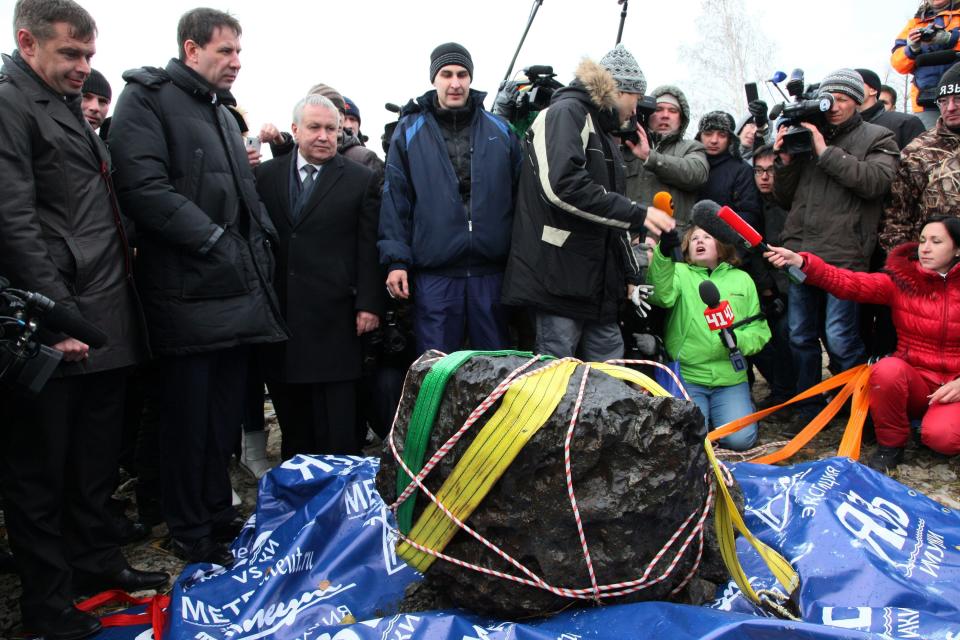Americans are right to worry more about killer asteroids than sending people to Mars

In the space community, people have argued for years about the best place to settle: the moon, Earth orbit or Mars. But when you poll average Americans, they have a different priority. They want us to focus on stopping killer asteroids.
According to a recent Associated Press poll, more Americans want NASA to focus on protecting against dangerous asteroid impacts than favor going to the moon or Mars. Well, if I have to choose, I’d choose that, too — though I can remember when even talking about the danger of asteroid impacts seemed crazy and far out to most “sensible” people.
But now we’ve learned enough that even ordinary folks are aware of the danger. It was just a few years ago that an asteroid exploded over the Russian city of Chelyabinsk, damaging property and injuring 1,100 people. Thanks to the ubiquity of dashboard cameras in Russia, there was plenty of video to document the event.
Chelyabinsk was not an isolated incident
Since then, there have been numerous near misses as asteroids have passed quite close to Earth, often discovered just a few days before — or sometimes after — their closest approach. Public safety officials are actually rehearsing what to do if an asteroid threatens major cities like New York. We get steady reports of new Earth-threatening asteroids being discovered. And Sunday is designated as Asteroid Day by the United Nations, a day to focus on the danger posed by killer asteroids and what to do about it.
So it’s not surprising that people are aware of the danger and want NASA to focus on it. But what does it mean to protect us against asteroid attacks?
Exploring the cosmos will protect us: Robert Zubrin makes 'The Case for Space'
Well, first, we have to know that they’re coming. This requires charting the orbits of all asteroids that might threaten the Earth. NASA is working on that and so is a private foundation, the B612 foundation, which is dedicated to addressing the asteroid threat.
At present, we could deal with smaller asteroid threats — “city busters” — by evacuating the area where they are going to hit. (Hence the New York exercise.) Larger ones — continent busters, planet wreckers or civilization killers — would have to be deflected into new, less dangerous orbits. Right now, we really don’t have the ability to move them, or even to deflect the smaller city busters. Basically, we’re helpless against anything really dangerous.

Businesses are interested in the fortune asteroids could provide
However, there is growing interest in asteroid mining already, with private companies actively involved. And the U.S. government has taken legal steps to make asteroid mining easier. (Some think that the enormous value of asteroidal resources means that asteroid mining will produce the first trillionaires. Jeff Bezos, take note.)
A successful asteroid mining venture will have, by necessity, the ability to find, rendezvous with and manipulate asteroids already. From there, it’s not a huge step to being able to deflect or destroy a threatening asteroid long before it strikes Earth.
More from the author: Nuclear rockets could open up solar system and help settle space. And NASA is interested.
The ancient Romans used to say if you want peace, prepare for war. But in this context, we might say if you want asteroid protection, prepare to start asteroid mining. Safety for the planet and immense new wealth for humanity? Sounds like a win-win situation.
Glenn Harlan Reynolds, a University of Tennessee law professor and the co-author (with Robert Merges) of "Outer Space: Problems of Law and Policy," is a member of USA TODAY's Board of Contributors.
You can read diverse opinions from our Board of Contributors and other writers on the Opinion front page, on Twitter @usatodayopinion and in our daily Opinion newsletter. To respond to a column, submit a comment to letters@usatoday.com.
This article originally appeared on USA TODAY: Americans are right to worry more about killer asteroids than sending people to Mars

